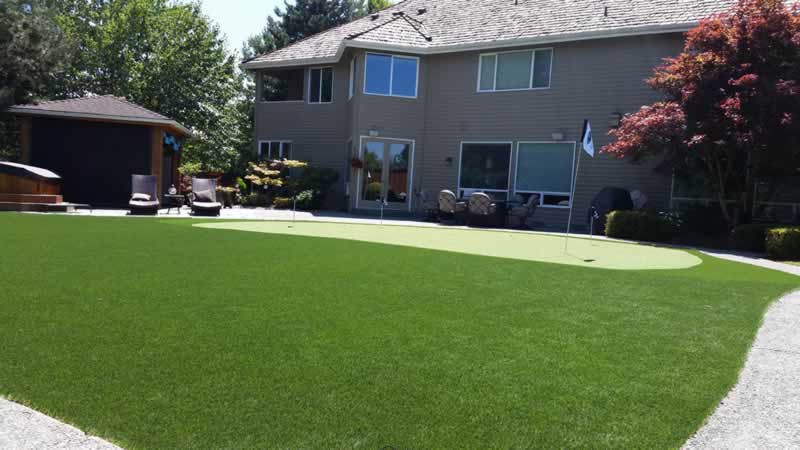How To Prevent Weeds From Growing In Artificial Grass Lawn In Lemon Grove?

- The first and most crucial step in preventing weeds from infiltrating your artificial grass is ensuring proper installation. A well-installed synthetic lawn will have a solid weed barrier underneath, such as a geotextile fabric. This barrier prevents weed seeds from germinating and growing up through the grass. Additionally, make sure that the edges of your artificial grass are securely fastened to the ground or a border to prevent weeds from finding their way in from the sides.
- To keep weeds at bay, establish a routine cleaning and maintenance schedule for your artificial grass. Remove any debris, leaves, or organic matter that may accumulate on the surface. Weeds often take root in these materials, so by keeping your lawn clean, you reduce the chances of weed growth. You can use a leaf blower or a stiff brush to clean the surface effectively.
- In some cases, it may be necessary to apply additional weed barriers or herbicides to your artificial grass lawn. Weed barriers are thin sheets of material that can be laid on top of the grass to block sunlight and prevent weed growth. Be cautious when choosing herbicides, though, as some can harm your artificial grass. Consult with a professional to ensure you’re using a weed control product that is safe for synthetic lawns.
- Frequent inspections of your artificial grass are essential to catch any potential weed growth early. Look for any small weeds or grass-like plants poking through the surface, and remove them promptly. The sooner you address the issue, the easier it will be to prevent the weeds from spreading. Hand-pulling weeds is a simple and effective method, but be sure to remove the entire root to prevent regrowth.
- Proper drainage is not only crucial for the longevity of your artificial grass but also for weed prevention. Ensure that your synthetic lawn has adequate drainage to prevent water from pooling on the surface. Weeds thrive in moist environments, so keeping your lawn dry will make it less inviting for them. If you notice water pooling, consider installing additional drainage solutions or adjusting the slope of your lawn.
FAQs
Can Weeds Grow Through The Artificial Grass Backing?
Weeds typically cannot penetrate the backing of artificial grass, which is designed to be a barrier against weed growth. However, if the installation was not done correctly, weeds may find their way through seams or gaps. Proper installation with a weed barrier is essential to prevent this.
Can I Use Regular Weed Killers On Artificial Grass?
While some weed killers may be safe for use on artificial grass, it’s essential to choose products specifically labeled as safe for synthetic lawns. Many traditional weed killers can damage or discolor artificial grass, so consult with a professional or check product labels to ensure compatibility.
How Often Should I Inspect My Artificial Grass For Weeds?
Regular inspections should be performed at least once a month, especially during the growing season. However, after heavy rainfall or if you notice any suspicious growth, it’s a good idea to check your lawn for weeds immediately.
Conclusion
Maintaining a weed-free artificial grass lawn requires proactive steps and regular care. Proper installation, routine cleaning, and the use of weed barriers are essential to prevent weeds from taking root in your synthetic lawn. By following these five tips and staying vigilant with inspections and maintenance, you can enjoy the beauty of a lush, weed-free artificial grass lawn year-round. For more information, contact Artificial Grass Lemon Grove at (619) 754-9700.

